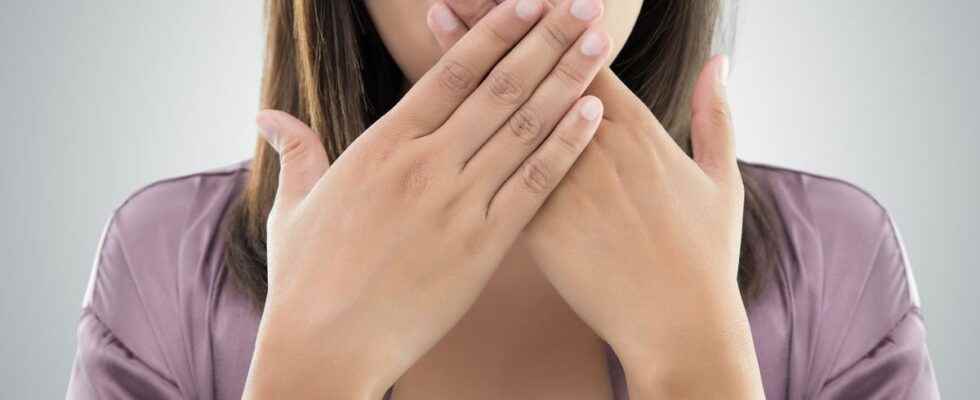Published on
Updated
Reading 2 mins.
Probiotics in fermented foods, such as yogurt, may fight bad breath. A consumption that should not, however, replace good dental hygiene.
Cause of bad breath…
It’s not just mint chewing gum (and good oral hygiene of course) to cover bad breath, which is called halitosis.
In the vast majority of cases, bad breath is linked to poor oral hygiene. Bacteria on the surface of the tongue or throat produce volatile sulfur compounds from food debris that cause bad odors.
Researchers from the University of Sichuan in China then sought to find out whether probiotics can slow down the production of volatile sulfur compounds.
7 studies assess the role of probiotics
The team then searched the search databases for relevant clinical trials published up to February 2021. In the end, the researchers retained only 7 studies involving 278 people, comparing probiotics with a placebo as a treatment for bad breath. The probiotics examined for the study were: Lactobacillus salivarius, Lactobacillus reuteri, Streptococcus salivarius and Weissella cibaria. They were all administered in supplement form.
The number of participants in each study was small, ranging from 23 to 68 people aged 19 to 70, with follow-up ranging from two to 12 weeks. Bad breath was assessed by the levels of volatile sulfur compounds detected in the mouth or the OLP score, which measures breath odor at different distances from the mouth. Researchers have also taken into account the levels of bacteria found on the tongue (tongue coating) and dental plaque in some studies, as these may also be responsible for bad breath.
A reduction in bad breath in the short term
According to the data analysis, it appears that:
- OLP scores fell significantly in those who received probiotics compared to those who received placebos, regardless of the length of the monitoring period.
- A similar result was observed for the levels of volatile sulfur compounds detected, although these varied considerably in individual studies, and the observed effects were of relatively short duration – up to 4 weeks, after which time it did not occur. there was no noticeable difference.
- But the researchers did not note any significant differences in tongue coating score or dental plaque index between those who received probiotics and those who did not.
The study also cites the supposed benefits of foods such as yogurt, miso soup, but also pickles, or kombucha.
A complementary effect, not an alternative to good dental hygiene
For Dr. Longjiang Li, author of the study, the research establishes a single fact: “Probiotics can inhibit the breakdown of amino acids and proteins by anaerobic bacteria in the mouth, thereby curbing the production of malodorous byproducts.”
However, he is cautious in pointing out that this study concerns a small sample of people. Moreover, he admits that “whether probiotics can relieve halitosis by reducing the concentration levels of volatile sulfur compounds in the short term, but there is no significant effect on the main causes of halitosis, such as plaque and coating of the language”.
Eating more yogurt can therefore have an effect on halithosis… but this in no way replaces good brushing 2 to 3 times a day, the use of interdental brushes, mouthwashes and tongue scraping .
